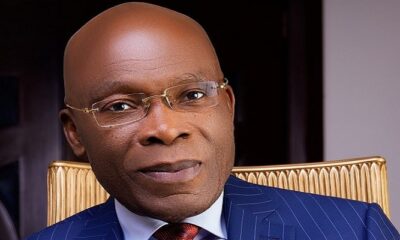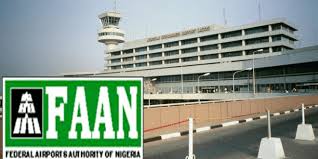Telecom
GSMA Cautions Mobile Operators on Access to the Right 5G Spectrum
The successful rollout of ultra-fast 5G services relies on timely access to the right amount and type of spectrum in the next year, warns the GSMA in an industry position released yesterday.
As the race to launch 5G services intensifies, the GSMA highlights the need for governments, regulators and the mobile industry to work together to deliver widespread coverage, and the full potential of 5G for everyone.
According to the ‘GSMA Public Policy Position on 5G Spectrum,’ governments around the world have started to auction spectrum for 5G networks, but variations in how much spectrum has been assigned, the onerous conditions imposed – and the cost of access to that spectrum – means the speed, reach and quality of 5G services could vary dramatically between countries.
Early adopter countries will be the first to realise the significant benefits of 5G – from fibre-like mobile broadband speeds and smarter cities to autonomous cars and digitised factories – and stand to reap important socio-economic benefits including GDP growth.
GSMA Intelligence forecasts that there will be 1.3 billion 5G connections by 2025, but this will be dependent on operators gaining access to sufficient spectrum.
“Operators urgently need more spectrum to deliver the endless array of services that 5G will enable – our 5G future depends heavily on the decisions governments are making in the next year as we head into WRC-19.
“Without strong government support to allocate sufficient spectrum to next generation mobile services, it will be impossible to achieve the global scale that will make 5G affordable and accessible for everyone. There is a real opportunity for innovation from 5G, but this hinges on governments focusing on making enough spectrum available, not maximising auction revenues for short term gains ,” said Brett Tarnutzer, Head of Spectrum, GSMA.
The GSMA outlines several key considerations for governments and regulators, including:
- 5G needs wider frequency bands to support higher speeds and larger amounts of traffic. Regulators that make available 80-100 MHz of spectrum per operator in prime 5G mid-bands (e.g. 3.5 GHz) and around 1 GHz per operator in vital millimeter wave bands (i.e. above 24 GHz), will best support the very fastest 5G services.
- 5G needs spectrum within three key frequency ranges to deliver widespread coverage and support all use cases:
– Sub-1GHz spectrum to extend high-speed 5G mobile broadband coverage across urban, suburban and rural areas and to help support Internet of Things (IoT) services
– Spectrum from 1-6 GHz to offer a good mix of coverage and capacity for 5G services
– Spectrum above 6 GHz for 5G services such as ultra-high-speed mobile broadband
- It is essential that governments support the 26 GHz, 40 GHz (37-43.5 GHz) and 66-71 GHz bands for mobile at WRC-19. A sufficient amount of harmonised 5G spectrum in these bands is critical to enabling the fastest 5G speeds, low-cost devices and international roaming and to minimising cross-border interference.
- Governments and regulators should avoid inflating 5G spectrum prices (e.g. setting high auction reserve prices) as they risk limiting network investment and driving up the cost of services.
- Regulators should avoid setting aside spectrum for verticals in key mobile spectrum bands; sharing approaches, such as leasing, are better options where vertical industries require access to spectrum.
“Governments and regulators have a major role to play in ensuring that consumers get the best outcome from 5G,” added Tarnutzer. “Once spectrum is allocated to mobile at WRC, licensing that spectrum at a national level, as history has shown, can take up to 10 years. Therefore, it is essential that governments take the right action now.”
Telecom
NCC Dismisses Rumours of Telecom Tariff Hike in January
Nigerian Communications Commission (NCC) has dismissed claims of a telecommunications tariff hike allegedly set to take effect in January 2025.

The Commission described the reports as false and unfounded, urging subscribers to disregard the misinformation.
A senior NCC official, emphasised that the regulatory body operates under a transparent framework guided by the Nigerian Communications Act, according to Punch Newspaper.
According to the official, this framework requires stakeholder consultations and strict adherence to due process before any tariff adjustments are approved.
“These rumours are baseless and misleading. The NCC is committed to protecting consumers and ensuring that any potential tariff changes are communicated clearly and transparently,” the official stated.
“Subscribers can rest assured that no tariff increase has been approved,” he added.
The NCC also appealed to journalists and industry stakeholders to verify information before publication, stressing the importance of accurate reporting to avoid unnecessary public panic.
Reiterating its commitment to consumer interests and the stability of the telecommunications industry, the Commission assured Nigerians that updates on tariffs or related matters would always be communicated through official channels.
The Association of Telephone, Cable TV, and Internet Subscribers of Nigeria (ATCIS) also addressed the rumours.
Speaking in Lagos, Mr Sina Bilesanmi, national president, ATCIS, stated that the association sought clarification directly from the NCC on December 24, 2024.
“The NCC confirmed there is no truth to claims of call charges increasing to N15.40 per minute from N11, SMS charges rising to N5.60, or 1GB of data costing N1,400 instead of N1,000.
“Any changes in tariffs, if necessary, will follow due process and involve input from all stakeholders, including ATCIS. There is no cause for alarm,” Bilesanmi said.
Both the NCC and ATCIS emphasised their commitment to consumer protection and urged subscribers to rely on verified information from credible sources.
Telecom
UnoTelos and Niral Networks Forge Strategic Partnership to Revolutionize Connectivity in Africa
UnoTelos, a leading telecommunications innovator in Nigeria, has announced a groundbreaking strategic partnership with Niral Networks, an advanced Private 5G and EDGE AI computing solutions provider from India.

This collaboration marks a significant milestone in addressing connectivity challenges and driving digital transformation across Africa.
Transformative Connectivity Solutions
The partnership between UnoTelos and Niral Networks emerges from a shared vision to overcome critical network infrastructure limitations that have traditionally hindered technological progress in the region. By combining UnoTelos’ deep understanding of the African market with Niral Networks’ cutting-edge NiralOS 5G Core and Edge AI technology, the collaboration aims to deliver secure, low-latency, and scalable connectivity solutions.
“This partnership is more than a technological alliance—it’s about empowerment,” said Jude Egbokwu, Founder & CEO of UnoTelos. “We are not just solving connectivity problems; we’re creating opportunities for businesses to innovate, grow, and compete on a global stage.”
“Our collaboration with UnoTelos represents a pivotal moment in the digital transformation journey across Africa. By integrating Niral Networks’ advanced Private 5G and Edge AI technologies with UnoTelos’ profound system integration capabilities and market insights, we are not just deploying telecom infrastructure—we are engineering ecosystems for innovation. This partnership is strategically designed to address the continent’s most critical connectivity challenges, enabling industries from mining to oil & gas to leapfrog technological barriers and compete on a global scale,” said Abhijit Chaudhary, Founder & CEO of Niral Networks.
Strategic Focus and Initial Deployments
The initial partnership will concentrate on pilot projects across key strategic sectors, including:
- Mining
- Oil and Gas
- Manufacturing
- Shipping & Ports
- Aviation & Airports
- Logistics & Warehousing
The modular design of NiralOS Private 5G and Edge provides the flexibility to customize solutions that meet the unique requirements of each industry, ensuring efficient and targeted deployment.
Technological Innovation and Market Differentiation
By leveraging NiralOS Private 5G and Edge, UnoTelos is positioning itself at the forefront of telecommunications innovation. The partnership enables enterprises in Nigeria to access advanced connectivity solutions that were previously unavailable or prohibitively expensive.
Key technological advantages include:
- Secure and reliable private network infrastructure
- Low-latency communication
- Scalable edge computing capabilities
- Tailored solutions for specific industry needs
Economic and Developmental Impact
The partnership is expected to catalyse digital transformation across multiple sectors. Potential applications include smart factory solutions, enhanced remote operations, and sophisticated IoT-enabled systems that can dramatically improve operational efficiency and competitiveness.
Future Outlook
Looking ahead, UnoTelos and Niral Networks envision expanding their collaboration, with plans to:
- Increase deployment scope
- Develop more advanced connectivity solutions
- Support the development of Private 5G & EDGE infrastructure
- Advance critical sectors like telemedicine and autonomous systems
Telecom
Starlink to Hike Internet Tariff in Nigeria from January
Since Friday, December 27, 2024, when Starlink, Elon Musk’s satellite internet service, announced an increase in its monthly subscription prices across Nigeria, effective immediately for new customers and starting January 27, 2025, for existing users, the industry regulator, Nigerian Communications Commission (NCC), is yet to react officially.

In an email to its subscribers on Friday, the company stated that the price adjustments are necessary to enhance its network infrastructure and maintain the delivery of high-quality internet service across the country.
The new pricing structure is as follows: Standard (Residential) ₦75,000, Mobile – Regional (Roam Unlimited) ₦167,000, and Mobile – Global (Global Roam) ₦717,000.
“These changes reflect our commitment to investing in the infrastructure needed to support and improve your experience with Starlink,” the company said.

 E-Business3 days ago
E-Business3 days agoNBS Votes N35m for Cybersecurity after Cyber Attack

 News3 days ago
News3 days agoEkeh, Zinox Group Founder Urges Entrepreneurs to Prioritise Integrity, Due Diligence

 Uncategorized3 days ago
Uncategorized3 days agoNigerian Airports to Get Mobile Courts to Try Unruly Passengers

 E-Financial3 days ago
E-Financial3 days agoAfDB to Release $2.2Bn Nigerian Agro-Industrial Fund from 2025

 Broadcasting2 days ago
Broadcasting2 days agoAfrobeats and Amapiano Lead Africa’s Musical Revolution

 Telecom3 days ago
Telecom3 days agoNCC Dismisses Rumours of Telecom Tariff Hike in January

 News3 days ago
News3 days agoSanctions on Air Peace, Other Were for Consumer Protection Infractions, Not Safety- NCAA

 E-Financial3 days ago
E-Financial3 days agoNGX Fines 20 Firms N255.53m for Financial Statements Filing Default
























